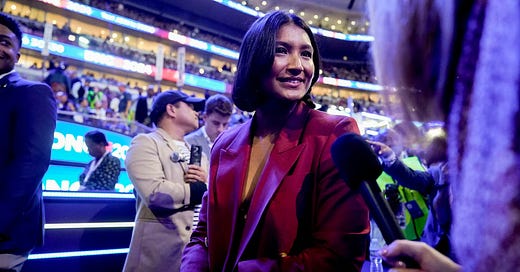My take on the journalists vs content creators debate
+ Rolling Stone's most influential creators of 2024, Paleontology drama, the Barbie flip phone and more
Hi! Sorry for being MIA last week, I was at the DNC then xoxo in Portland and between non stop events and travel I didn't have time to post. Since I got back I've been seeing a lot of backlash related to content creators at the DNC, so I thought I'd share my thoughts. Usual link list and fun stuff all below!! :)




